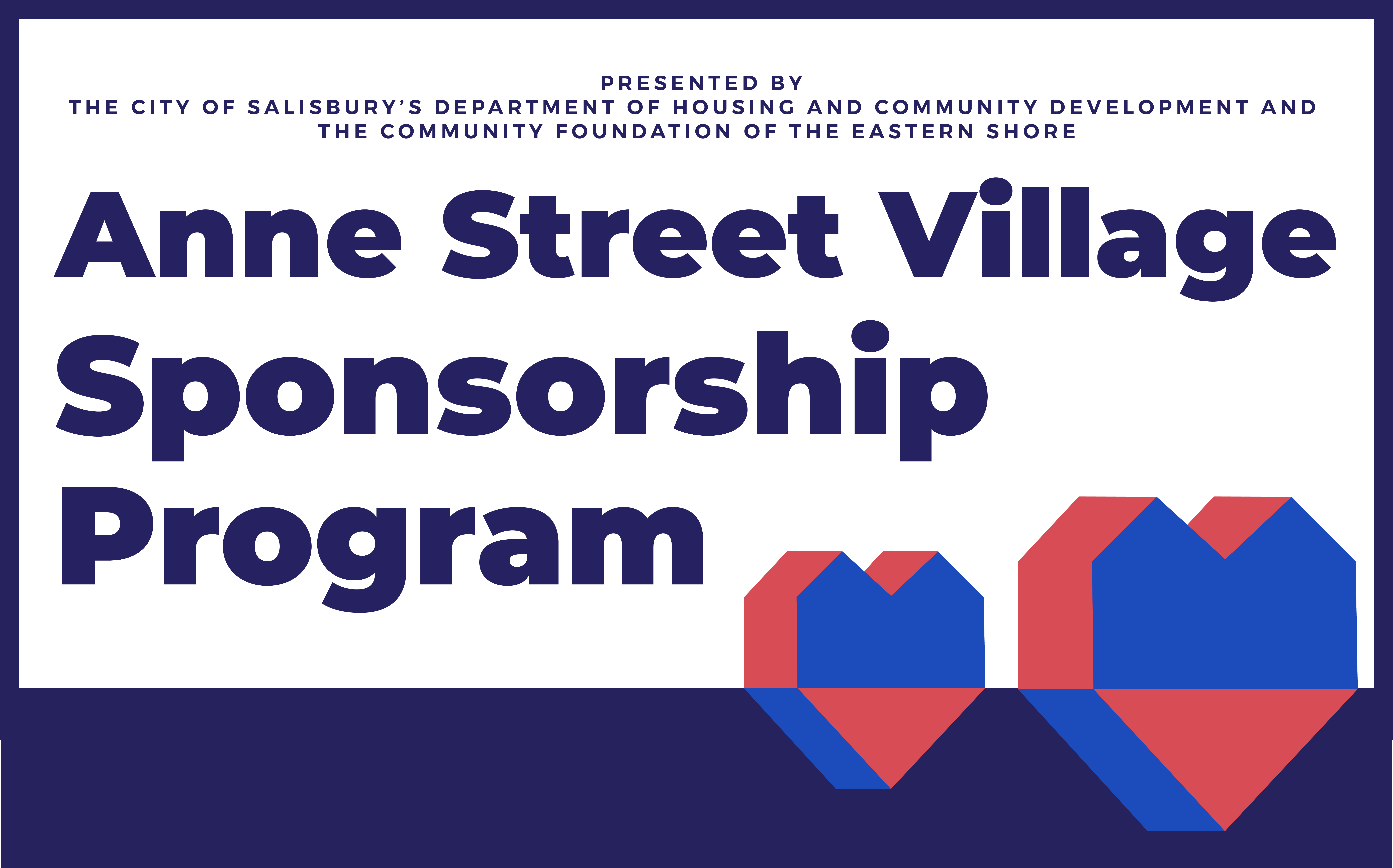How to Donate
- Donate online at https://www.cfes.org/donate! Type the name of the fund in the drop-down box: City of Salisbury Homelessness Fund.
- Donate by check. Checks should be made payable to the “Community Foundation of the Eastern Shore” with the name of the fund on the memo line, City Of Salisbury Homelessness Fund. The address is 1324 Belmont Avenue Ste. 401, Salisbury, MD 21801.
- Provide an in-kind donation. Contact the City’s Department of Housing and Community Development at 410-334-3031 to arrange.
Sponsorship Tiers
All below tiers include social media ‘thank you’ on the City’s Housing First Facebook.
*All below tiers renew every three years.
Pewter Tier – $1,000: Fill a Unit
- Supply a unit with crucial supplies like bedding, towels, cleaning supplies, cutlery, carpeting, table and chairs, microwave, and mini refrigerator. These supplies are taken with each resident when they transition to permanent housing through the Housing First program.
- UNLIMITED AVAILABILITY
Bronze Tier – $2,500: Fund Daily Needs
- Provide funding towards daily food and transportation for Anne Street residents.
- UNLIMITED AVAILABILITY
Silver Tier – $5,000: Shepherd Sponsor
- Name a unit (logo plaque on unit)
- Covers all costs to move Anne Street resident into permanent housing
- Logo on Anne Street Village Webpage
- 23 AVAILABLE
Gold Tier – $10,000: Name a Lane
- Name a lane (the main pathways within Anne Street Village, marked by a street sign with your name or organization)
- Fills a unit
- Covers all costs to move Anne Street resident into permanent housing
- Provides funding towards food and transportation
- Logo on Anne Street Village Webpage
- 3 AVAILABLE
Platinum Tier – $25,000: Sponsor Anne Street Village
- Name the Personal Hygiene Facility (logo plaque on on-site building)
- Private tour with Mayor Jack Heath and members of the Housing First team
- Covers all costs to move Anne Street resident into permanent housing
- Provides funding towards food and transportation
- Logo on Anne Street Village Webpage
- 1 AVAILABLE



